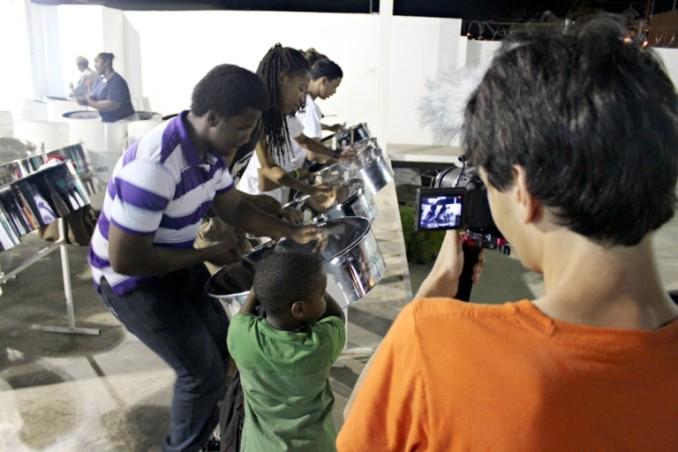By Leah Hansen
Fourth-year practicum projects are a normal part of the radio and television arts (RTA) program.
However, this year, a group of nine students took it to the next level, travelling to Trinidad and Tobago to fi lm their project – the fi rst episode in a travel series.
The students spent 10 days in November gathering footage.
Their show, The World I See, has three hosts taking a look at things like nightlife, local cuisine and hidden gems in exotic destinations.
“The whole concept of the show is to not only go places that have amazing [attractions] but can also use the exposure,” says Kareem Ali, who acted as executive producer and one of the three hosts. “When Trinidad found out what we were doing, they were very fast to welcome us with open arms.”
Trinidad’s Ministry of Tourism and the Ministry of Foreign Affairs were instrumental in helping the group by providing local guides and drivers. Because the country doesn’t have a big tourism industry, they were quick to support the project, Ali says.
Despite extensive preparation before the group’s travel (the group produced a 47-page “production bible” including call sheets, a detailed synopsis of the show, a script and a marketing plan) their pre-planning was almost completely ignored once they got there, says Zayn Jinah, the production manager and one of the hosts.
“All that really mattered was the equipment that we had and where we were going,” Jinah says. “We didn’t use the script at all, we barely used the treatment and call sheets were not respected. The nature of the show is very unscripted.”
Ali agrees, saying that most of their production consisted of ad hoc situations they followed up on. Joining a Trinidadian family for dinner and participating in Diwali celebrations were just some of the situations they couldn’t script for, he says.
Filming in a different country within a set time period was a challenge as well, Jinah says.
Trying to get all the shots they needed in 10 days was diffi cult, especially because they only had access to tour guides and drivers at specifi c times. Trying to balance the roles of the three hosts also proved challenging, Ali says.
“I think that’s the biggest issue that we came across – fi nding a way to produce a show that has three hosts and three different personalities,” Ali says. “That’s something we’re still working on: fi nding the perfect balance instead of having one person or two people outweigh the other.” Now that they’re back in Canada, the group is focusing on post-production and marketing.
While the group had a small amount of Trinidadian media exposure, getting the series picked up by TV and media stations in Toronto will involve promoting the pilot online and screening it for industry experts at the yearend RTA showcase.
“I wouldn’t be surprised if it gets a professional broadcast license,” says Charles Zamaria, faculty advisor for the RTA practicum program. “Based on their preparedness and their passion, it’s something that I think will have a definite possibility with different channels.”
If the series gets picked up, the next show is set for New Zealand, says Ali, followed by Haiti, India, China and the Philippines.
“This has gone beyond a school project,” Ali says. “That was our goal in the beginning: not to necessarily make this a final project, but to make it our first project.”










Leave a Reply